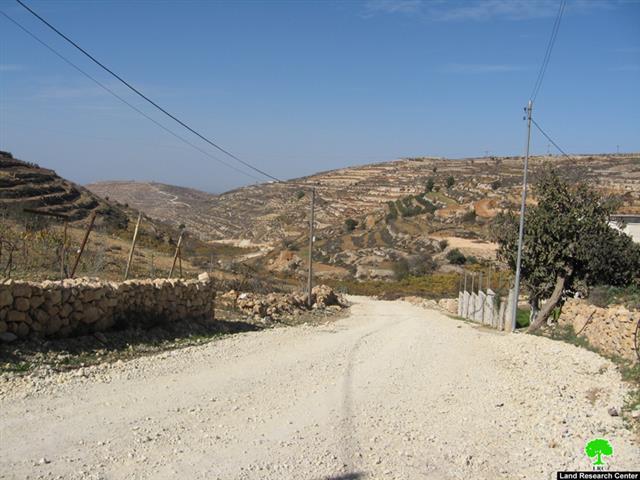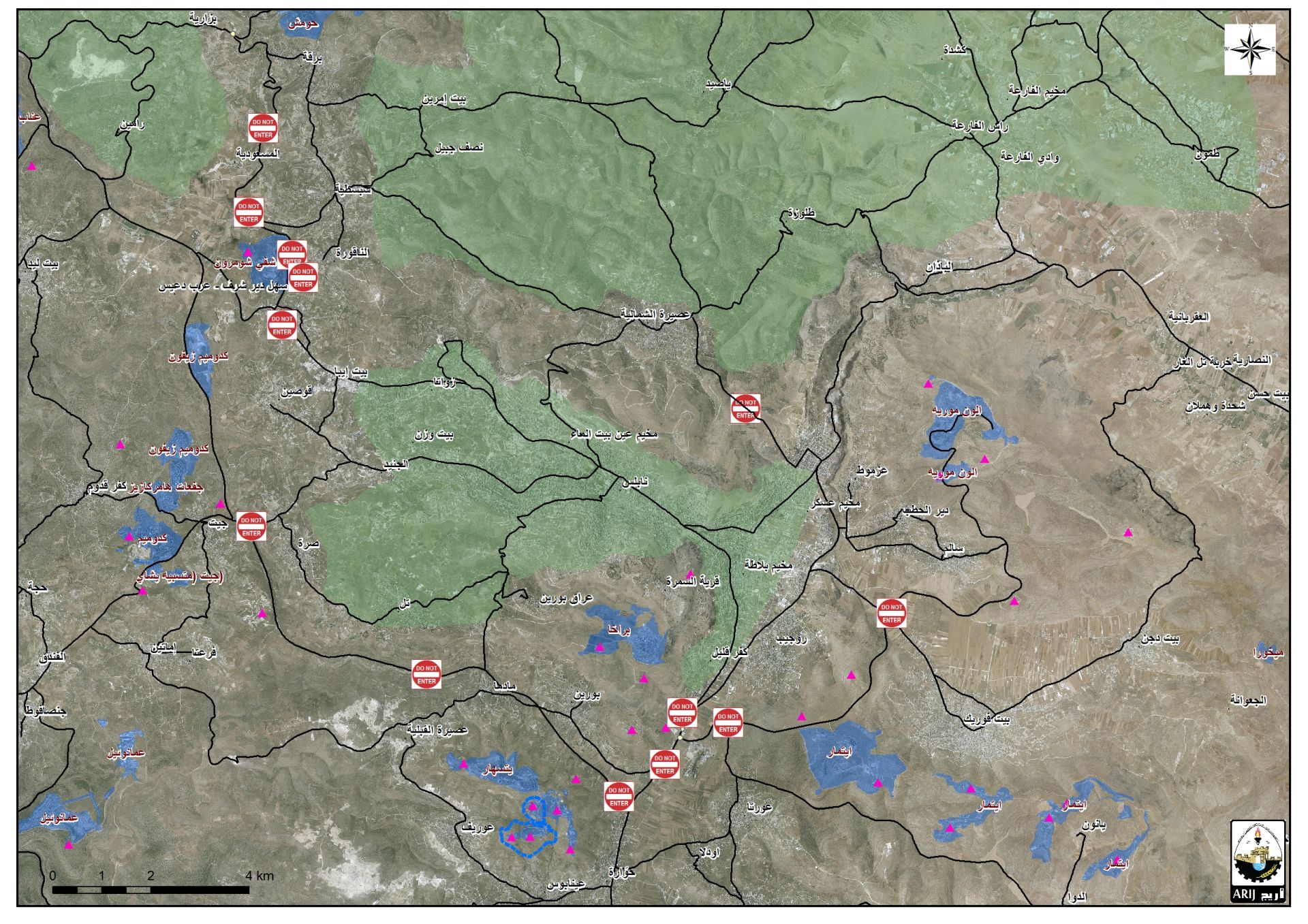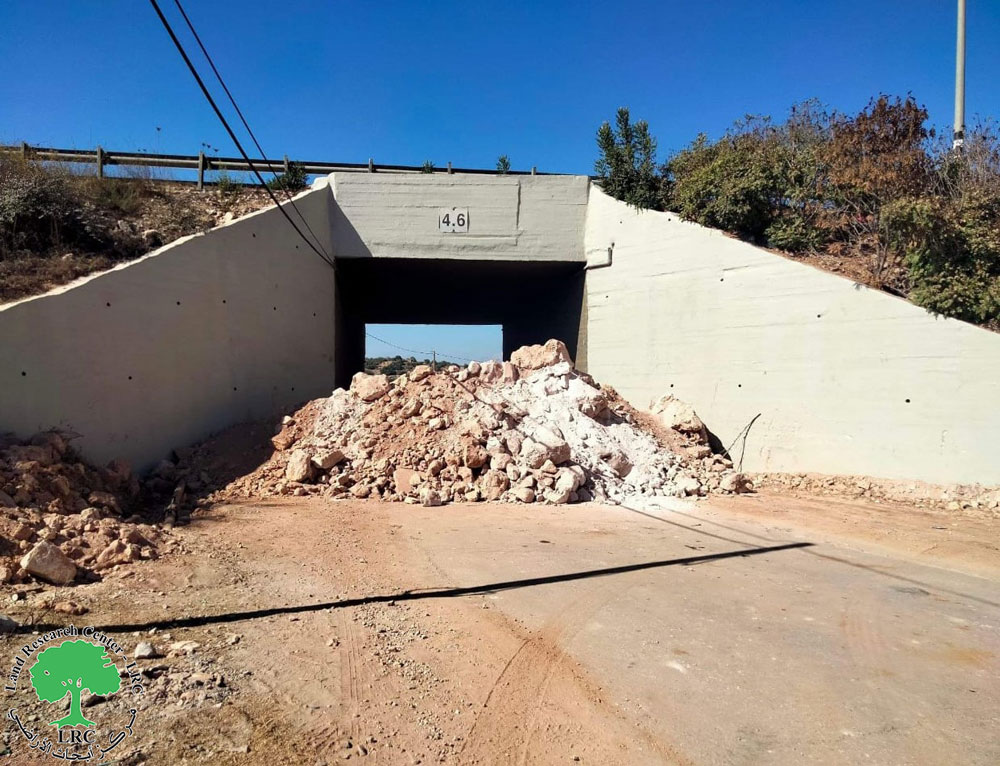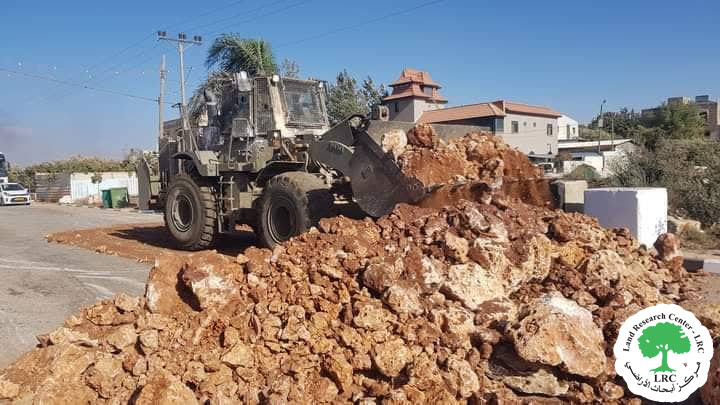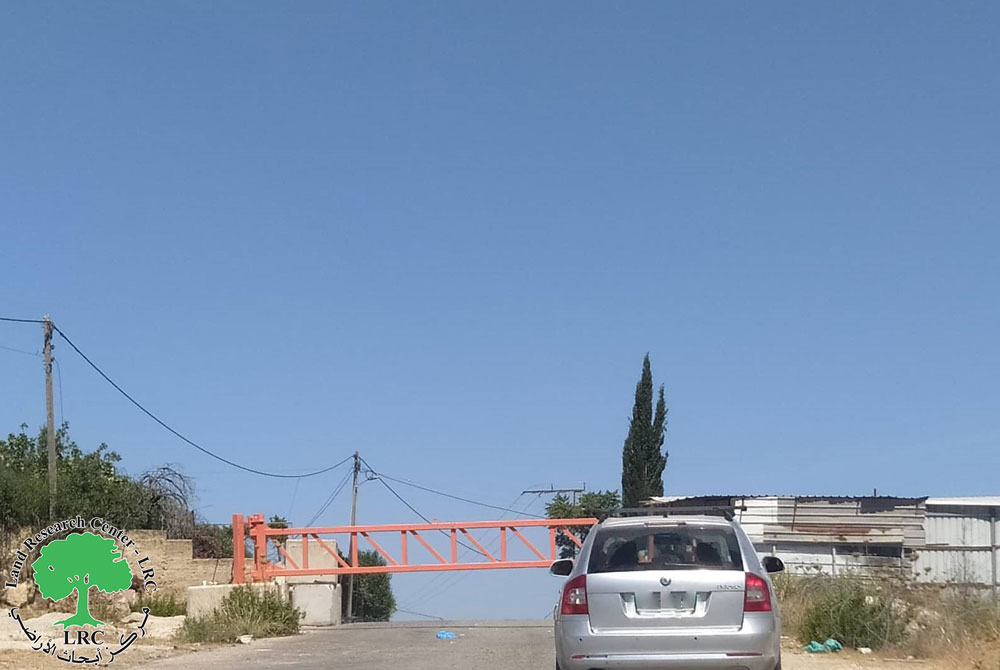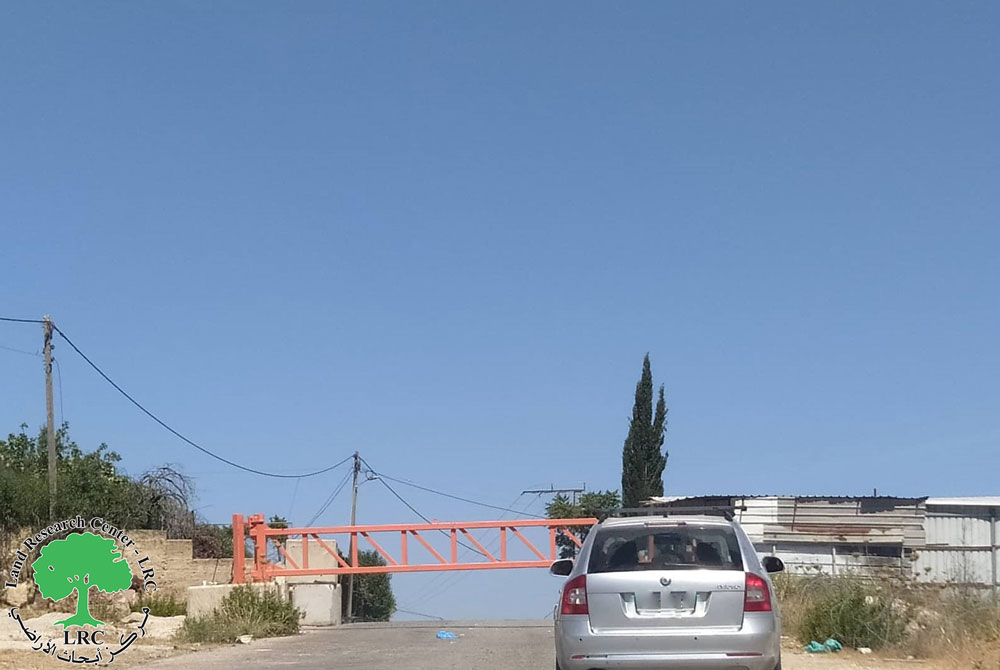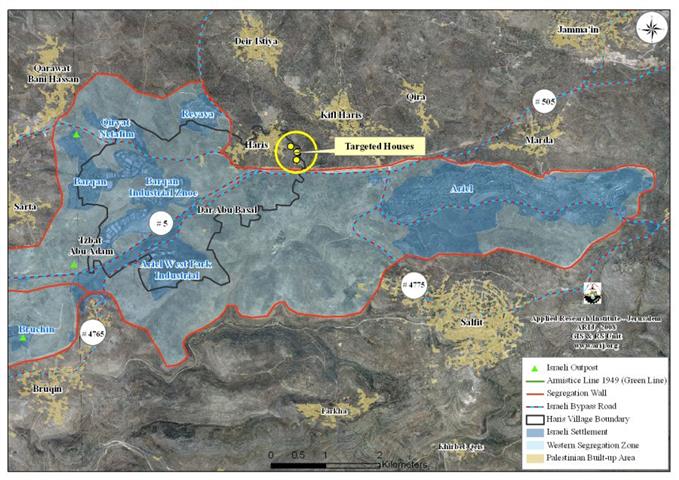Introduction:
Al Hawawer Road (dubbed Road 2 on the map) used to be the main northern road that connects between the governorate of Hebron and the governorates of Bethlehem and Jerusalem. It also used to link the cities of Hebron and Halhul with the rest of the villages and towns located north and east of the governorate of Hebron. Yet, in 1996 Israeli occupation forces constructed By-Pass Road 60 (dubbed Street 1 on the map) to link the Israeli colonies in Bethlehem governorate with the colonies of Kiryat Arba, Karmi Tzur, Kharsina, Karmael, and Ma’on (among others) in the governorate of Hebron. In the current Intifada Israeli occupation forces placed a huge earthmound that blocks any Palestinian vehicular movement using Al Hawawer which made the trip northwards or southwards much more difficult.
Before the year 2007 the Halhul Municipality, in cooperation with the Palestinian Ministry of Local Governance, decided to rehabilitate the 2.5 kilometer Wadi Abu Rajab Road (dubbed Road 3) which links the town of Halhul with the western and northern towns and villages such as Beit Ummar and Jala. Around 50,000 people were expected to benefit from the rehabilitation of the road which has cost so far about $150,000. Israeli occupation patrols used to come to the site of the work, take pictures of the on-going work, yet without attempting to stop it.
On the 12th and 15th of November, 2008 the Infrastructure Officer in the so-called Israeli “Civil Administration”, accompanied with the Security Guard of the colony of Karmi Tzur and a number of Israeli occupation soldiers, came to the site of the work and ordered the contractor to strop work on the Road. He also informed him that any machinery used to continue the work will be confiscated along with the 5 workers and the site engineer. Furthermore, the Officer called Dr. Ziad Rajab Abu Yousef, the Halhul Mayor, to inform him of the “Stop Work: order.
Dr. Abu Yousef indicated the following to the Land Research Center (LRC)’s field researcher: 'Israeli occupation patrols were monitoring our work and sometimes they would come to the work site without us knowing what their intentions were. They could have told us to stop our work since we began a year ago. They have informed us only when we were close to finishing it. We only need to asphalt the road to be finished with it. We have paid large sums of money to open up the road, build the walls surrounding its banks, placing the busscors in addition to fees of laborers and machinery. It’s become clear to us that obstructing the projects of Palestinian local institutions is plausible within the Israeli occupational dictionary. '

Photo 2: An agricultural tractor using Wadi Abu Rajab Road.
Eng. Hani Mur’eb, the site engineer expressed the following to LRC’s researcher: ' On the 12th and 15th of November, 2008 the Infrastructure Officer at the so-called Israeli Civil Administration came to our working site. He verbally told us to stop the work, otherwise workers will be arrested and equipment will be confiscated. He did not produce any written document to that effect. We, then, vacated the location and called the Palestinian Civil Liaison Officer to coordinate with the Israeli DCL in Bet El for us to continue the work. It was agreed that on the 26th of November, 2008 all of the needed documents about the project would be submitted for discussion. ' See Photo 3
Umm Mohammad said the following: ' I have lived here for the past 4 years. I have hoped that the rehabilitation of the road would finish as soon as possible. We have suffered greatly; during the summer we would suffer from the dust and during the winter from the mud. Getting our groceries home was also a challenge due to the roughness of the road. When the Municipality started rehabilitating the road about a year and a half ago, we were very happy and we thought that our problems would soon be over. Yet, our happiness was dashed as the Israeli occupation does not want to see any Palestinian on this land. Not only the occupation has confiscated most of our lands, it does not, also, want us to walk on paved and lit roads. This road is located far away from any colony and it does not threaten the life of any one. Just look at the roads leading to and inside the colonies. There are lit to benefit small house and mobile units that are established on our confiscated lands…. It is just unfair. '
Photo 4: The houses located on both sides of the Abu Rajab house while
an Israeli military camp appears at the top of the hill.
The Demands of Halhul Municipality
The Municipality appealed to the national and international rights organizations to carryout its mandates and to pressure the Israeli side to stop placing obstacles in the way of Palestinian entities trying to improve the living conditions for Palestinians. The Municipality also demanded that the international community compels Israel to stop its land grab policy and its feverish colonization process especially in areas classified as Area C.
The Town of Halhuk: General Information:
The town of Halhul is located about 7 kilometers north of the city of Hebron. Its area is about 39,000 dunums of which 9,000 dunums form its built-up area. It is the highest point in the West Bank. Its population is estimated to be 22,413, according to PCBS population projections.

Photo 5: An overview of the city of Halhul
Photo 6: Israeli Bypass Road number 60
The Colony of Karmi Tzur:
The colony is located atop lands from the town of Halhul (in the locations of Shu’eb Al Hajj, Shu’eb Muaiser and Shu’eb Yousef) and the town of Beit Ummar (Tha’aher Jalis hill). The afore-mentioned locations are located 9 kilometers north of the city of Hebron. The colony was established in 1984 on 160 dunums of confiscated Palestinian lands. Its current population stands at 713 Israeli colonists. Finally, it is worth pointing out that the colony was one of the few colonies that were slated to be evicted in case a peace agreement is reached between the Palestinians and the occupation forces.
Photo 7: The colony of Karmi Tzur. The Abu Rajab road was stopped for its benefit.
What Next?:
At the time that the colony of Karmi Tzur expands at the expense of Palestinian lands in the towns of Beit Ummar and Halhul, Israeli occupation forces prevents the final stages of road rehabilitation to take place. As such, more than 3,000 dunums of Palestinian lands have become inaccessible. Land owners wanting to access their lands are currently obliged to get a prior permit from the Israeli occupation authorities who make getting such a permit very difficult.
LRC condemns the prevention of work continuation in the Wad Abu Rajab road and warns of the effects of the Israeli policy of collective punishment on the Palestinian population. The Center demands that the administration of the occupation authorities allows the continuation of the rehabilitation work on the road. Moreover, the Center demands that international officials, especially those of the EU, to pressure Israel to stop its restrictive policies against the Palestinians.
Prepared by:
The Land Research Center
LRC


